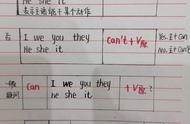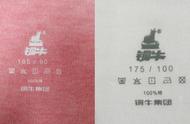根据图片内容,完成下列句子或对话。

1. — Tom ______?
— Yes, he can. He can play them very well.

2. — Can your grandpa ______?
— Yes, ______. He often plays it with my grandma on the weekend.

3. — What ______ he ______?
— He can ______.
经典讲解情态动词can意为“能、会;可以”,没有人称和数的变化,后面跟动词原形。
◆can的用法
①表示某种能力,意为“能;会”
如:I can speak Japanese. 我会讲日语。
②表示请求或许可,意为“可以”
如:— Can I borrow a book? 我能借本书吗?
— Yes, you can. 是的,你可以。
◆句式结构
①肯定句:
主语 can 动词原形 其他.
②否定句:
主语 cannot/can’t 动词原形 其他.
③一般疑问句:
Can 主语 动词原形 其他?
肯定回答:Yes, 主语 can.
否定回答:No, 主语 can’t.
④特殊疑问句:疑问词 一般疑问句,
如:What can you make? 你会制作什么?
注意:
疑问词做句子中主语成分的特殊疑问句句式结构为:
疑问词 can 动词原形 其他
如:Who can answer this question? 谁会回
答这个问题?
活学活用根据对话情景,填入适当的单词或句子,补全对话。
Jane: Maria, Bob’s birthday party is coming. What can you do at the party?
Maria: 1. ________________.
Jane: Great! Can you sing Chinese songs?
Maria: 2. ________________. I can only sing English songs. What about you?
Jane: I’m good at playing the piano. I can 3. ________________a song for him.
Maria: We can perform together (一起表演) at the party.
Jane: Sounds good. I’m sure we’ll have a good time.
key【小试身手】
1、Can; play the drums
2、play chess; he can
3、can; do; do kung fu
【活学活用】
1、I can sing some songs
2、No, I can’t
3、play
,











